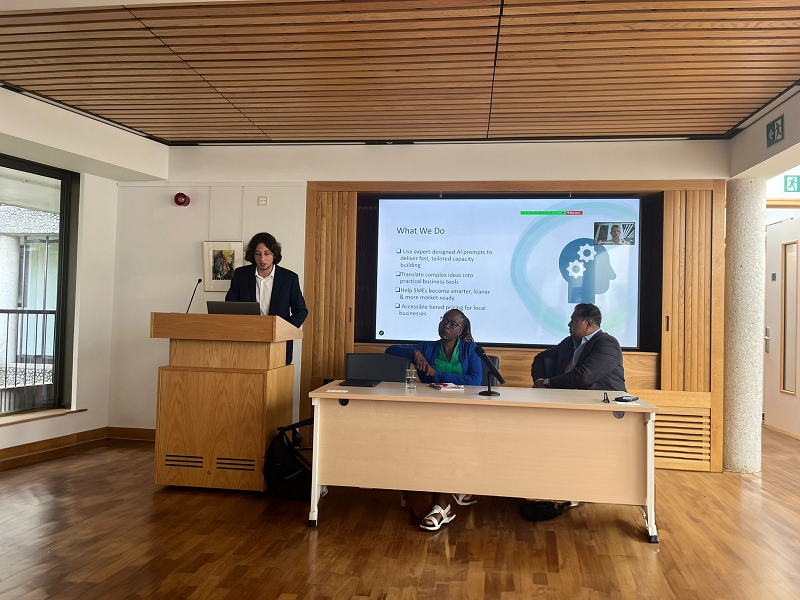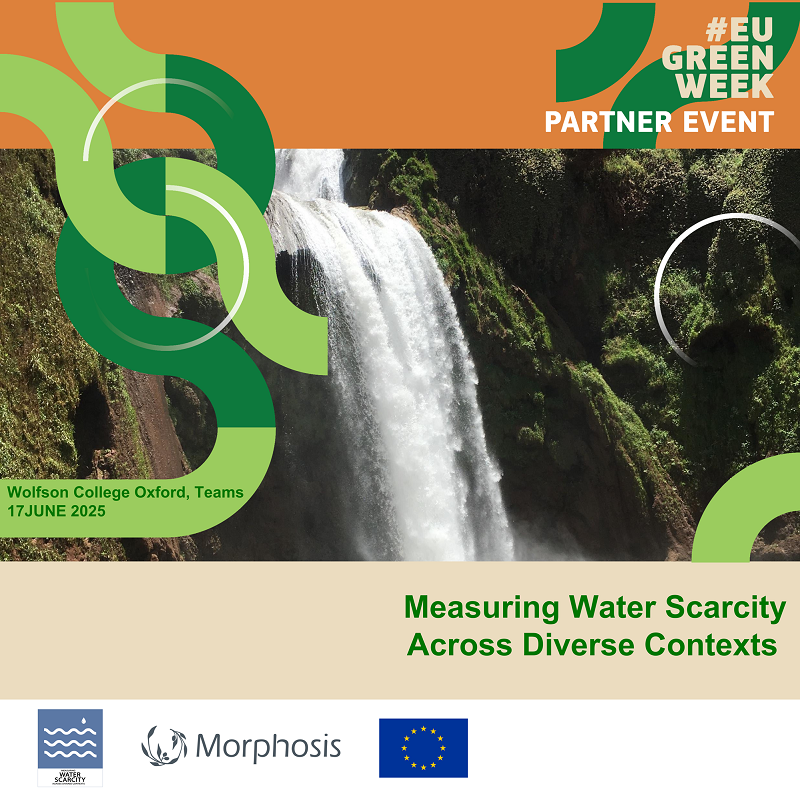As Cyprus grapples with one of its driest years in recent memory, Morphosis Group — a consultancy operating between Cyprus and the UK — convened a high-level event last week at Wolfson College, University of Oxford as part of the official EU Green Week 2025 Partner Event Programme, with the theme: “Measuring Water Scarcity Across Diverse Contexts”.
The event brought together leading international experts from the University of Oxford, LSE, Cranfield University and UWE Bristol to examine how water scarcity is assessed — and how existing measurement frameworks often fail to reflect the lived realities of those experiencing it.
Drawing on cases from the Middle East, East Africa and Europe, panelists highlighted how households often resort to informal water sources — not because official supply doesn’t exist, but because pricing, schedule disruptions and trust in water quality force them to seek alternatives, and how this situation can have adverse consequences for both water availability and public health.

“Water scarcity isn’t just about how many litres flow through the pipes — it’s about whether water is affordable, reliable, safe and accessible in people’s everyday lives,” explained Morphosis Group CEO Marios Charilaou. “Accurate measurement is central to effective governance. Only by understanding how households actually experience water scarcity — whether in Zambia, Jordan, Cyprus or elsewhere — can we design policies that reflect real-world conditions.”
Speakers emphasised the need for more nuanced measurement approaches that move beyond simple supply metrics and reflect the lived experiences of water users. As one speaker noted: “Sometimes the most important question to ask when trying to understand water scarcity in any context, is simply: how does water scarcity feel to you?”
In addition to expert panel discussions, the event featured practical training workshops where participants were guided through the process of constructing a composite water insecurity index, using urban Jordan as a case study. Working with open-source data science tools and pre-prepared code templates, the sessions demonstrated how global frameworks such as the WISE Scales (developed at Northwestern University) can be adapted and combined with context-sensitive indicators to better capture the complexity of household-level water vulnerability.
The event was held as part of the European Commission’s official EU Green Week 2025 Partner Event Programme, this year focusing on the circular economy and sustainable resource use. For Morphosis Group — which supports SMEs and policymakers in sectors such as water, energy and climate governance — the event also marked a further step in developing AI-supported tools for water metrics and policy design.
Further collaborations are now under way to expand this work in both research and applied policy contexts across Cyprus and the Eastern Mediterranean.






Click here to change your cookie preferences